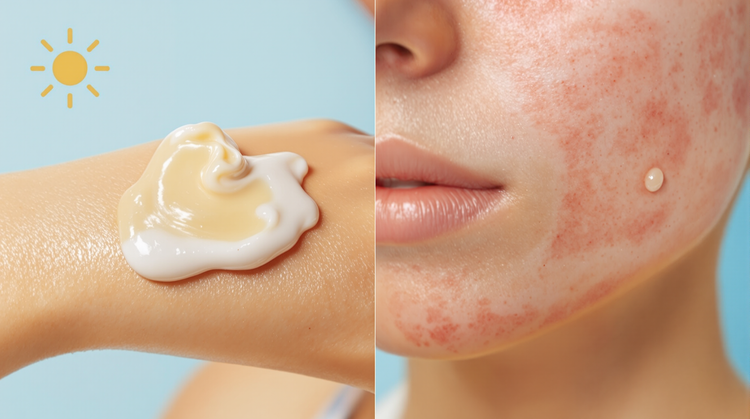The Importance of Sunscreen for Dermatitis: A Complete Protection Guide

Living with dermatitis presents unique skincare challenges, and sun protection becomes even more crucial for those managing this condition. This comprehensive guide explores why sunscreen is essential for dermatitis sufferers and how to choose the right products for sensitive skin.
Understanding Dermatitis and Sun Sensitivity
Dermatitis, an inflammatory skin condition, can make your skin more vulnerable to UV damage. Whether you have atopic dermatitis (eczema), contact dermatitis, or seborrheic dermatitis, sun exposure can:
-
Trigger flare-ups
-
Worsen existing symptoms
-
Cause additional inflammation
-
Increase skin sensitivity
Why Sunscreen is Critical for Dermatitis
People with dermatitis often have a compromised skin barrier, making proper sun protection essential. Sunscreen helps:
-
Prevent UV-induced inflammation
-
Maintain skin barrier function
-
Reduce risk of hyperpigmentation
-
Minimize dermatitis flare-ups
Choosing the Right Sunscreen
When selecting sunscreen for dermatitis-prone skin, consider these factors:
Physical vs. Chemical Sunscreens:
-
Physical (mineral) sunscreens with zinc oxide or titanium dioxide are generally better tolerated
-
Chemical sunscreens may irritate sensitive skin
-
Look for "reef-safe" and "non-nano" mineral options
Key Features to Look For:
-
Broad-spectrum protection
-
Minimum SPF 30
-
Fragrance-free
-
Hypoallergenic
-
Non-comedogenic
-
Moisturizing ingredients
Application Tips for Sensitive Skin
Proper application is crucial for effective protection:
-
Apply 15-30 minutes before sun exposure
-
Use generous amounts
-
Reapply every 2 hours
-
Apply more frequently when swimming or sweating
-
Test new products on a small area first
Managing Dermatitis While Using Sunscreen
Combine sun protection with dermatitis management:
-
Use prescribed medications first
-
Allow treatments to absorb
-
Apply sunscreen as final step
-
Consider UV-protective clothing
-
Avoid peak sun hours
Special Considerations
Additional factors to consider:
- Medication interactions
- Seasonal changes in skin sensitivity
- Impact of humidity
- Activity level and exposure time
Product Recommendations
Types of sunscreens suitable for dermatitis:
-
Mineral-based formulas
-
Fragrance-free options
-
Products with additional barrier support
-
Moisturizing sunscreens
When to Seek Professional Help
Consult a dermatologist if you experience:
-
Severe reactions to sunscreen
-
Increased dermatitis symptoms
-
Unusual skin changes
-
Persistent sun sensitivity
Conclusion
Proper sun protection is crucial for managing dermatitis and maintaining healthy skin. Choose appropriate products and develop a consistent routine that works with your condition.
